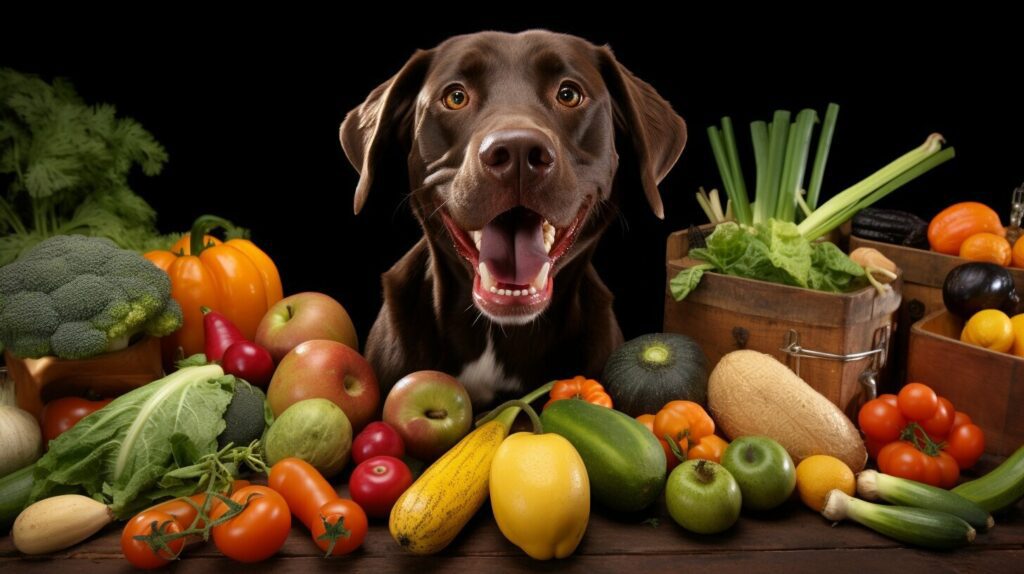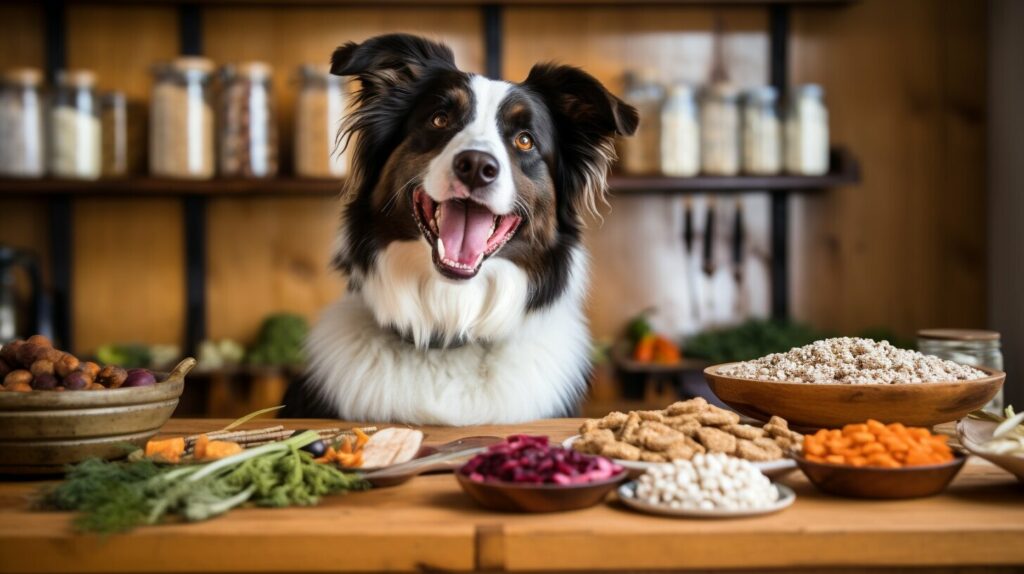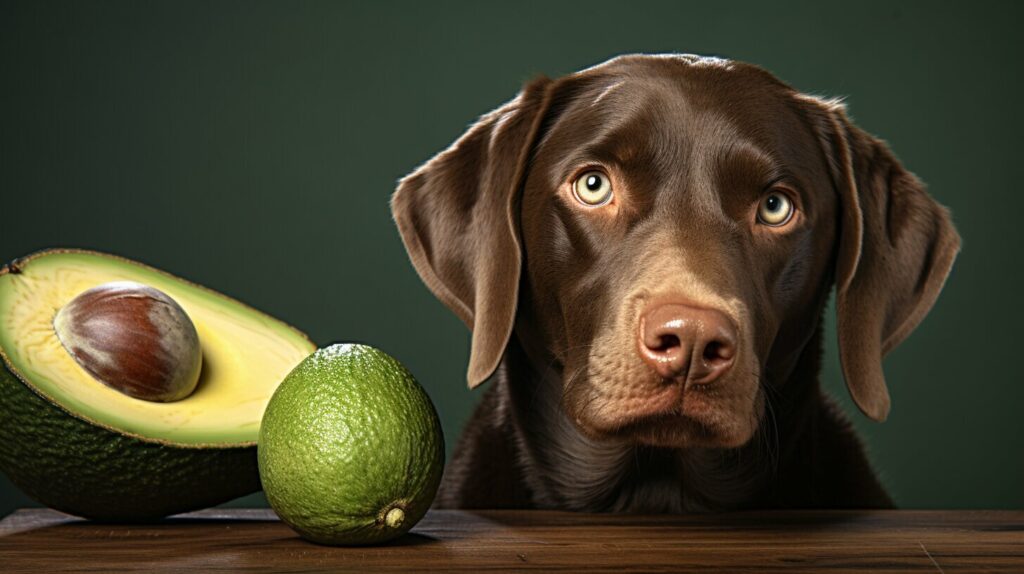If you’re a pet owner, you’ve probably wondered whether certain human foods are safe for your furry friend to consume. One food item that comes to mind is carrots. Are they safe for dogs to eat? The answer is yes! Not only are carrots safe for dogs, but they also offer numerous health benefits.
In this section, we’ll explore whether dogs can safely consume carrots and how to incorporate them into their diet. We’ll also discuss the nutritional value of carrots and potential risks to keep in mind.
Key Takeaways:
- Carrots are safe for dogs to eat and offer numerous health benefits
- You can incorporate carrots into your dog’s diet by serving them cooked or raw, in small pieces or pureed
- Vitamins A, K, and C, as well as fiber and beta-carotene, are present in carrots, making them a healthy addition to your dog’s diet
- While carrots are generally safe, it’s important to monitor your dog’s response to ensure they don’t experience any digestive issues or allergies
Are Carrots Safe for Dogs?
Before incorporating any new food into your dog’s diet, it’s important to determine if it’s safe for them to consume. Fortunately, carrots are generally considered safe for dogs to eat.
Carrots are a low-calorie, high-fiber food that can provide numerous health benefits for your furry friend. They can help improve digestion, promote healthy teeth and gums, and boost immune function.
However, it’s important to note that like any food, carrots can pose some risks or precautions to consider. For example, dogs who consume excessive amounts of carrots may experience digestive upset or diarrhea. Additionally, dogs with certain health conditions, such as diabetes, may need to limit their carrot intake due to their sugar content.
If you’re unsure if your dog can safely eat carrots, it’s best to consult with your veterinarian before introducing them into their diet.
The Nutritional Value of Carrots for Dogs
If you’re looking for a healthy snack to add to your dog’s diet, look no further than carrots! These tasty vegetables offer numerous nutritional benefits for your furry friend.
| Nutrient | Amount per 100g of Carrots |
|---|---|
| Vitamin A | 16,706 IU |
| Vitamin K | 13.2 mcg |
| Potassium | 320 mg |
| Fiber | 2.8 g |
Carrots are an excellent source of vitamin A, which plays a vital role in maintaining your dog’s vision, skin, and immune system. Vitamin K is also present in carrots and contributes to blood clotting and bone health. Potassium is important for maintaining healthy muscles and is essential for proper heart function. Finally, the fiber in carrots can aid in digestion and promote a healthy bowel movement.
In addition to the above, carrots also contain antioxidants such as beta-carotene, which can help prevent cancer and other diseases. They’re also low in calories and high in water content, making them an ideal snack for overweight dogs or those prone to dehydration.
When feeding carrots to your dog, be sure to cut them into small, bite-sized pieces to avoid any choking hazards. You can also try steaming or boiling them to make them easier to digest. And if your dog is a picky eater, consider incorporating carrots into their regular diet by mixing them in with their food or using them as a healthy treat during training sessions.
Incorporating Carrots into Your Dog’s Diet
If you’re looking to add more vegetables to your dog’s diet, carrots are a great option. Here are some tips for incorporating carrots into your dog’s regular meals:
1. Mix grated carrots into their food
You can easily mix grated carrots into your dog’s regular meal. This adds a nutritional boost, as well as a bit of texture and flavor to their dish. Start with a small amount and gradually increase the portion size over time.
2. Give carrots as a snack or training treat
Carrots make great snack options for your dog. You can cut them into small bite-sized pieces for easy feeding, or try using them as training treats. Your furry friend will love the taste and texture of this crunchy snack.
3. Cooked carrots as a meal topper
If your dog is a picky eater, try adding some cooked carrots as a meal topper. This can make their food more enticing and encourage them to eat their entire meal. Cooked carrots are also easier to digest for dogs than raw carrots.
4. Homemade Carrot Treats
If you enjoy making homemade treats for your furry friend, there are many delicious carrot treat recipes available. You can make anything from carrot and apple muffins to carrot and peanut butter biscuits. These treats are not only tasty but also provide added nutrition for your pup.
Remember to consult with your veterinarian before making any significant changes to your pet’s diet.
How to Feed Carrots to Dogs
Feeding carrots to your furry friend is easy and safe, but there are still some important things to keep in mind. Here are some tips to make sure your dog enjoys their carrots:
- Start Slow: Just like with any new food, introduce carrots gradually into your dog’s diet to avoid upsetting their stomach. Start by incorporating small pieces or pureed carrots into their regular meals and gradually increase the amount over time.
- Choose the Right Size: When feeding raw carrots, make sure they’re chopped into bite-size pieces to avoid any potential choking hazards. For smaller dogs, consider cutting the carrots into smaller pieces to make them easier to chew.
- Cooked Carrots: Cooked carrots are easier to digest and provide more nutritional benefits. You can steam or boil the carrots until they’re soft and then cut them into smaller pieces for your dog to enjoy.
- Avoid Seasonings: When feeding your dog carrots, be sure to avoid adding any seasonings, spices, or oils. These can upset your dog’s stomach and potentially harm their health.
- Monitor Your Dog’s Response: While most dogs can safely eat carrots, there’s always the possibility of an allergic reaction or digestive issues. Keep an eye on your dog’s behavior and stool after feeding them carrots to ensure they’re not experiencing any negative side effects.
If your dog is hesitant to eat raw or cooked carrots, try incorporating them into homemade treats. Carrot-based treats are a tasty and nutritious way to give your dog the benefits of this superfood. See Carrot Treats for Dogs for some delicious and easy-to-make recipes.
Dogs and Carrot Treats
Carrots are a healthy and nutritious snack for your furry friend. Not only are they low in calories, but they’re also packed with vitamins and minerals. If you’re looking for a way to incorporate carrots into your dog’s diet, why not try making some homemade carrot treats?
Carrot and Apple Treats: Combine shredded carrots and diced apples in a bowl. Spread the mixture out on a baking sheet and bake at 350 degrees for 20-25 minutes or until crispy. Your dog will love the sweet and savory flavors of this delicious treat!
Carrot and Peanut Butter Bites: Mix shredded carrots with peanut butter and a bit of honey. Form the mixture into bite-sized balls and freeze for several hours. These treats are perfect for hot summer days!
Carrot and Oatmeal Cookies: Combine shredded carrots, oatmeal, and a mashed banana in a bowl. Mix in a bit of water and form the dough into cookies. Bake at 350 degrees for 15-20 minutes or until golden brown. Your dog will enjoy the natural sweetness of this treat!
Remember to supervise your dog while they’re enjoying their treats, and always provide fresh water. These homemade carrot treats are a great way to show your furry friend some love while providing them with healthy and nutritious snacks.
Potential Side Effects and Precautions
While carrots are generally safe for dogs, it’s important to be aware of potential side effects and take necessary precautions when introducing them to your dog’s diet. Some dogs may experience digestive issues such as vomiting, diarrhea, or gas after consuming carrots. If your dog experiences any of these symptoms, discontinue feeding them carrots and consult with your veterinarian.
Additionally, some dogs may be allergic to carrots. Signs of an allergic reaction may include itching, swelling, or difficulty breathing. If you suspect your dog is allergic to carrots, seek immediate veterinary attention.
Incorporating carrots into your dog’s diet should be done gradually, especially if your dog has not eaten them before. Start with small portions and monitor your dog’s reaction. Be sure to wash and chop the carrots into small, manageable pieces to avoid any choking hazards.
Finally, remember that carrots should not replace your dog’s regular diet and should only be used as a supplement or occasional treat. Before making any significant changes to your pet’s diet, consult with your veterinarian.
Other Vegetables Dogs Can Eat
While carrots are a great option for your furry friend, there are plenty of other vegetables that dogs can safely consume. Incorporating a variety of veggies into your dog’s diet can provide them with a range of vitamins, minerals, and antioxidants to keep them healthy and happy.
Here are some other vegetables that you can safely feed your dog:
- Green beans: These are a great source of fiber and vitamins C and K.
- Sweet potatoes: These provide beta-carotene, fiber, and vitamins A and C.
- Pumpkin: This vegetable is high in fiber and can help regulate your dog’s digestion.
- Broccoli: This veggie is packed with vitamins A, C, and K, as well as fiber and folate.
- Cucumbers: These are low in calories and a good source of hydration for your dog.
It’s important to always prepare these vegetables properly before feeding them to your dog. Steaming or boiling them can make them easier to digest and prevent any potential choking hazards.
Remember to introduce new vegetables gradually and monitor your dog’s response. If you notice any signs of digestive upset or allergies, speak to your veterinarian about adjusting your dog’s diet.
Conclusion
Congratulations! You’ve learned that dogs can safely consume carrots and enjoy their numerous health benefits. Remember to introduce carrots gradually and monitor your dog’s reaction. Always consult with your veterinarian before making any significant changes to your pet’s diet.
By incorporating carrots into your dog’s regular diet, you are providing them with essential vitamins, minerals, and antioxidants that contribute to their overall health and well-being. You can even have fun making homemade carrot treats for your furry friend to enjoy. Just keep in mind the appropriate portion sizes and always ensure they are chopped or cooked to avoid any potential choking hazards.
While carrots are generally safe for dogs, it’s important to be aware of potential side effects, such as digestive issues or allergies. Additionally, there are other vegetables that dogs can safely consume. Consider incorporating a variety of vegetables into your dog’s diet to ensure they receive a well-rounded, balanced diet.
FAQ
Q: Can dogs eat carrots?
A: Yes, dogs can eat carrots. Carrots are safe and nutritious for dogs, providing them with essential vitamins and minerals.
Q: Are carrots safe for dogs to eat?
A: Yes, carrots are safe for dogs to eat. However, it’s important to feed them in moderation and consider the size and age of your dog.
Q: What are the benefits of carrots for dogs?
A: Carrots offer several benefits for dogs, including improved digestion, dental health, and a good source of vitamins and antioxidants.
Q: How can I incorporate carrots into my dog’s diet?
A: You can incorporate carrots into your dog’s diet by adding them as a snack, mixing them with their regular food, or even preparing homemade carrot treats.
Q: How should I feed carrots to my dog?
A: When feeding carrots to your dog, it’s important to cut them into small, bite-sized pieces to avoid choking hazards. Also, consider your dog’s size and age when determining portion sizes.
Q: Are there any potential side effects or precautions when feeding carrots to dogs?
A: While carrots are generally safe for dogs, it’s important to monitor for any potential digestive issues or allergies. If you notice any adverse reactions, consult with your veterinarian.
Q: What are some other vegetables that dogs can eat?
A: In addition to carrots, dogs can safely consume vegetables like peas, green beans, and sweet potatoes. These vegetables offer additional nutritional benefits for your furry friend.



